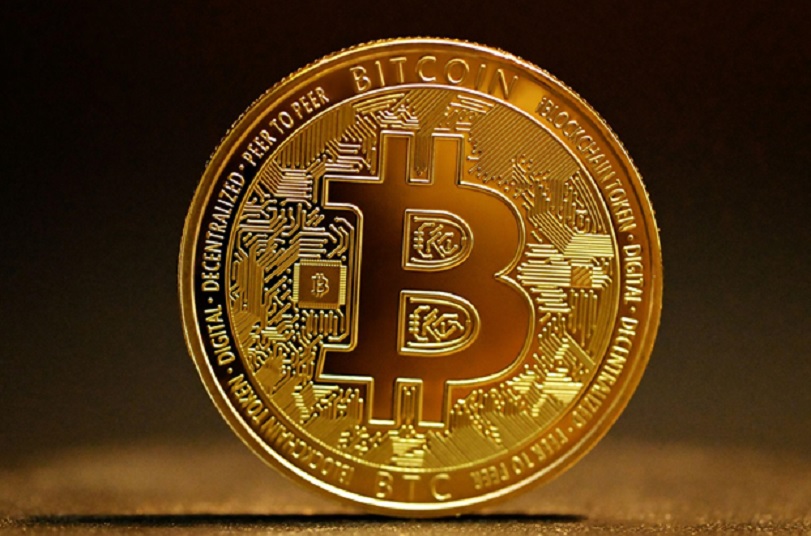Economy
Navigating the Winds of Change: Crypto Trading in Nigeria Faces New Tax Realities

In the dynamic landscape of Nigeria’s economy, crypto trading has emerged as both a refuge and a challenge amid currency devaluation and economic uncertainties. According to a recent report by New York-based blockchain research firm Chainalysis, Nigeria’s crypto transactions witnessed a substantial 9% year-over-year growth, reaching an impressive $56.7 billion between July 2022 and June 2023. This surge can be attributed to a growing number of Nigerians beginning to trade crypto like bitcoin and stablecoins, particularly during periods of extreme drops in the value of the naira.
From Ban to Tax: The Unpredictable Trajectory
The crypto boom in Nigeria gained momentum as citizens sought alternatives to hedge against the devaluation of the national currency, exacerbated by bold economic reforms implemented by President Bola Tinubu. Notably, the scrapping of a costly petrol subsidy and the removal of certain exchange rate restrictions contributed to the weakening of the naira.
In response to these economic challenges, Nigeria’s young and tech-savvy population turned to cryptocurrencies, leveraging peer-to-peer trading options offered by crypto exchanges to navigate around the 2021 ban on crypto transactions imposed by the country’s banks and financial institutions.
However, as the crypto market flourished, the government took an unexpected turn in 2023. In a surprising move, the Buhari-led government introduced a new law to tax gains on digital assets, including cryptocurrencies. This shift marked a departure from the 2021 ban and showcased the government’s willingness to explore crypto taxation as a potential revenue source.
The crypto tax, embedded in a series of amendments to the 2022 Finance Act, imposes a 10% tax on profits from digital assets. This involves not solely cryptocurrencies but also non-fungible tokens and other tokenized assets, as elucidated by Adewale Ajayi, a partner at KPMG. The implementation of this tax, nevertheless, surprised numerous individuals in the crypto community, instigating discussions on the absence of a well-defined policy framework and stakeholder participation in the decision-making process.
Challenges and Debates: Navigating the Road Ahead
Obinna Iwuno, the president of the Stakeholders in Blockchain Technology Association of Nigeria (SiBAN), expressed bewilderment at the sudden imposition of a tax without a comprehensive policy framework. He highlighted the necessity for cooperation between the government and stakeholders in the cryptocurrency realm to guarantee impartial and well-informed decision-making.
Opponents contend that, although levying taxes on cryptocurrency is not inherently erroneous, excessive taxation could impede the development of an industry that is still in its early stages. Davizoe Effiong, CEO of BEI Consultancy, warned against the potential negative impact on crypto adoption, suggesting that capping the tax profit at 5% could strike a balance between revenue generation for the government and sustaining the growth of the crypto ecosystem.
One key challenge highlighted by crypto traders, such as Wale, is the need for the government to formalize and legitimize the crypto industry. To effectively implement the tax, there must be collaboration with international exchanges and the licensing of crypto traders. The government’s recent directive to Binance Nigeria Limited to cease soliciting Nigerian investors is indicative of its efforts to regulate and control the crypto space.
The crypto community awaits the release of guidelines from Nigeria’s tax authority, the Federal Inland Revenue Service (FIRS), in collaboration with the Joint Tax Board. As the regulatory landscape evolves, questions loom over the enforcement of the tax and its potential impact on the promises made by President Bola Tinubu’s administration, which expressed a bullish stance on crypto and blockchain technology.
Conclusion
In summary, the trajectory of cryptocurrency trading in Nigeria mirrors an intricate interaction among economic circumstances, governmental directives and the ambitions of a technology-savvy populace. While the country contends with the imperative for fresh income streams, the cryptocurrency sector stands at a juncture, weighing the prospective advantages of taxation against the hazard of impeding its advancement. The coming months will reveal how Nigeria navigates these challenges and whether the crypto tax becomes a catalyst for industry maturation or a hurdle to widespread adoption.
Economy
Dangote Refinery Shares to be Available to Public in Five Months

By Adedapo Adesanya
The chairman of Dangote Group, Mr Aliko Dangote, has said that within the next five months, Nigerians should be able to purchase shares of Dangote Petroleum and Refinery.
Mr Dangote made this revelation on Sunday during a tour of the facility by the chief executive of the Nigerian National Petroleum Company (NNPC) Limited, Mr Bayo Ojulari, alongside members of the company’s executive management.
The $20 billion refinery is the largest single-train refinery in the world with 650,000 barrels per day refining capacity. There are efforts to boost the capacity to 1.4 million barrels per day soon.
Speaking with journalists, Mr Dangote said, “And the other issue is that they (NNPC) are holding 7.25 per cent of the shares that we have here, which is more than the shares Elon Musk has in Tesla. And they are holding that on behalf of Nigerians,” he said.
“So individually, Nigerians too will have an opportunity in the next, maybe a maximum of four to five months. There will actually be an opportunity to buy the shares.”
He added that shareholders will have the option to receive their dividends in either naira or dollars, as the refinery also earns in dollars.
Commenting on Mr Ojulari’s visit, the billionaire businessman said the NNPC, represented by Mr Ojulari and its management team, was not just a guest but a shareholder.
“Today is really our best day ever” at the facility. I know NNPC invested in us when we were not really sure whether the refinery would be successful.
“So that’s the kind of level of confidence. But right now, the relationship with the new set of people that we have at NNPC, I think the sky is the limit, and we will cooperate and also make sure that we work together to make sure that we make Nigerians proud.”
Speaking on prospects of partnership with NNPC in the upstream sector, he said, “We have block 71, 72, but we’re going to look much deeper”.
“Most likely, depending on our own discussions with them, we will partner with them, maybe in some of the upstream. They, too, will partner with us here because here is not just a refinery, it’s an industrial hub.
“And that’s why we’re doing linear alkaline benzene, which is a raw material for detergents, ” he added.
Economy
NGX Investigates Zichis Stocks After 859% Rise in One Month

By Aduragbemi Omiyale
The Nigerian Exchange (NGX) Limited has launched an investigation into trading activities on the shares of Zichis Agro-Allied Industries Plc.
A notice from Customs Street on Monday disclosed that this has led to the suspension of the company for now.
This development comes about a month after Zichis was listed on the domestic bourse and placed in the growth board of the NGX.
In the circular, it was disclosed that the suspension may be lifted after the conclusion of the findings, but for now, investors will not be able to trade the organisation’s securities on the NGX platform.
“The suspension of trading in Zichis shares shall be lifted upon the conclusion of an investigation into the trading activities on the company’s shares,” a part of the disclosure stated.
The bourse explained that it wielded the big stick on Zichis in compliance with Rule 7.0, Rules on Suspension of Trading in Listed Securities, Rulebook of The Exchange (Issuers’ Rules).
This part of the law states that, “Notwithstanding any of the foregoing provisions, the exchange may, in accordance with any of its rules, place the trading of any security on suspension.
“It may also do so if it is of the view that such suspension will be in the interest of the investing public and in accordance with the SEC Rules.”
In announcing the action on the firm, the NGX declared that, “The shares of Zichis Agro-Allied Industries Plc have been suspended from trading on the facilities of Nigerian Exchange Limited (NGX), effective today, Monday, February 23, 2026.”
Business Post reports that last week, shares of Zichis appreciated by 60.74 per cent to N17.36. It joined the stock exchange at N1.81, indicating it has gained N15.55 or 859.12 per cent in one month.
Economy
Nigeria Investment Fund, Japan Unveil $50m Innovation Fund for Startups

By Adedapo Adesanya
The Nigeria Investment Authority (NSIA) and Japan International Cooperation Agency (JICA) have finalised agreements to launch a $50 Sovereignmillion impact innovation fund aimed at strengthening the Nigerian start-up ecosystem.
The fund is expected to provide patient capital to pre-seed, seed, and early-stage startups addressing critical social challenges in sectors such as agriculture, healthcare, education, energy, waste and water management.
JICA will provide $14 million in grant support, while NSIA contributes up to $20 million to match the grant.
Structured as an onshore public fund, the initiative combines financial support with technical assistance to help startups refine products, scale operations, and expand into new markets.
The fund is expected to create jobs, improve livelihoods, and contribute to sustainable economic development across Nigeria.
Speaking at the agreement signing ceremony between NSIA and JICA at the Ministry of Budget and Economic Planning, Mr Aminu Umar-Sadiq, the chief executive of NSIA, said: “The Fund represents a transformative step for Nigeria’s startup ecosystem. By providing early-stage ventures in high-impact sectors with the capital and support they need to grow, we are enabling innovators to tackle some of Nigeria’s most pressing challenges. Our collaboration with JICA underscores our commitment to entrepreneurship, inclusive growth, and sustainable development.”
Preparations are underway to operationalise the Fund and develop a pipeline of high-impact startups ready for investment. NSIA remains committed to advancing socio-economic development through strategic partnerships that scale impact, expand innovative solutions, and unlock access to capital.
On his part, the Japanese Ambassador to Nigeria, Mr Suzuki Hideo, said, “The Government of Japan hopes this new project will take root in Nigeria and bear fruit swiftly.”
-

 Feature/OPED6 years ago
Feature/OPED6 years agoDavos was Different this year
-
Travel/Tourism10 years ago
Lagos Seals Western Lodge Hotel In Ikorodu
-

 Showbiz3 years ago
Showbiz3 years agoEstranged Lover Releases Videos of Empress Njamah Bathing
-

 Banking8 years ago
Banking8 years agoSort Codes of GTBank Branches in Nigeria
-

 Economy3 years ago
Economy3 years agoSubsidy Removal: CNG at N130 Per Litre Cheaper Than Petrol—IPMAN
-

 Banking3 years ago
Banking3 years agoSort Codes of UBA Branches in Nigeria
-

 Banking3 years ago
Banking3 years agoFirst Bank Announces Planned Downtime
-

 Sports3 years ago
Sports3 years agoHighest Paid Nigerian Footballer – How Much Do Nigerian Footballers Earn






















